Over 2,400 Kilograms: A Massive Amount
No matter the type of vehicle, be it sedans, coupes, hatchbacks, or SUVs, the pattern remains unchanged. Whenever a fresh car enters the market, it inevitably bears larger dimensions and weight compared to its predecessor. In fortunate cases, the manufacturer may try and offset this trend by increasing horsepower and torque. This seems to be the case with the new BMW M5 model, according to a trustworthy insider at BMW.
According to a reputable member of the Bimmer Post forums, who has a track record of predicting BMW’s future models accurately, some exciting technical details about the upcoming G90 model have been revealed. This highly anticipated super sedan, codenamed G90, will be equipped with the same plug-in hybrid V8 system found in the controversial XM. However, the engineers at Bavaria are reportedly making some adjustments, resulting in a remarkable power output of 718 hp. The renowned twin-turbo 4.4-liter gasoline engine is expected to deliver 577 hp and 750 Nm (553 lb-ft), while the electric motor will add an impressive 194 hp and 280 Nm (207 lb-ft) to the total power.


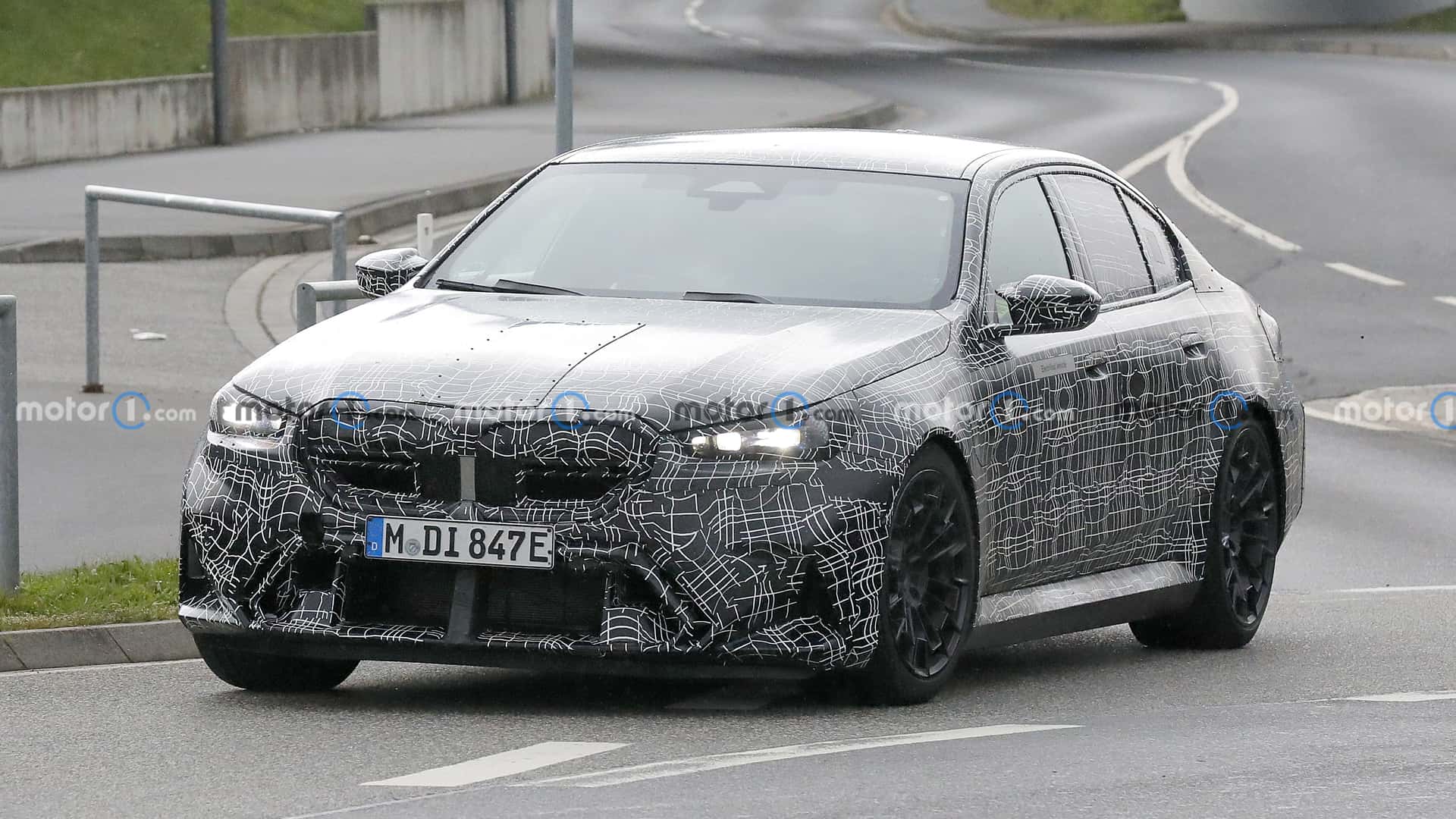
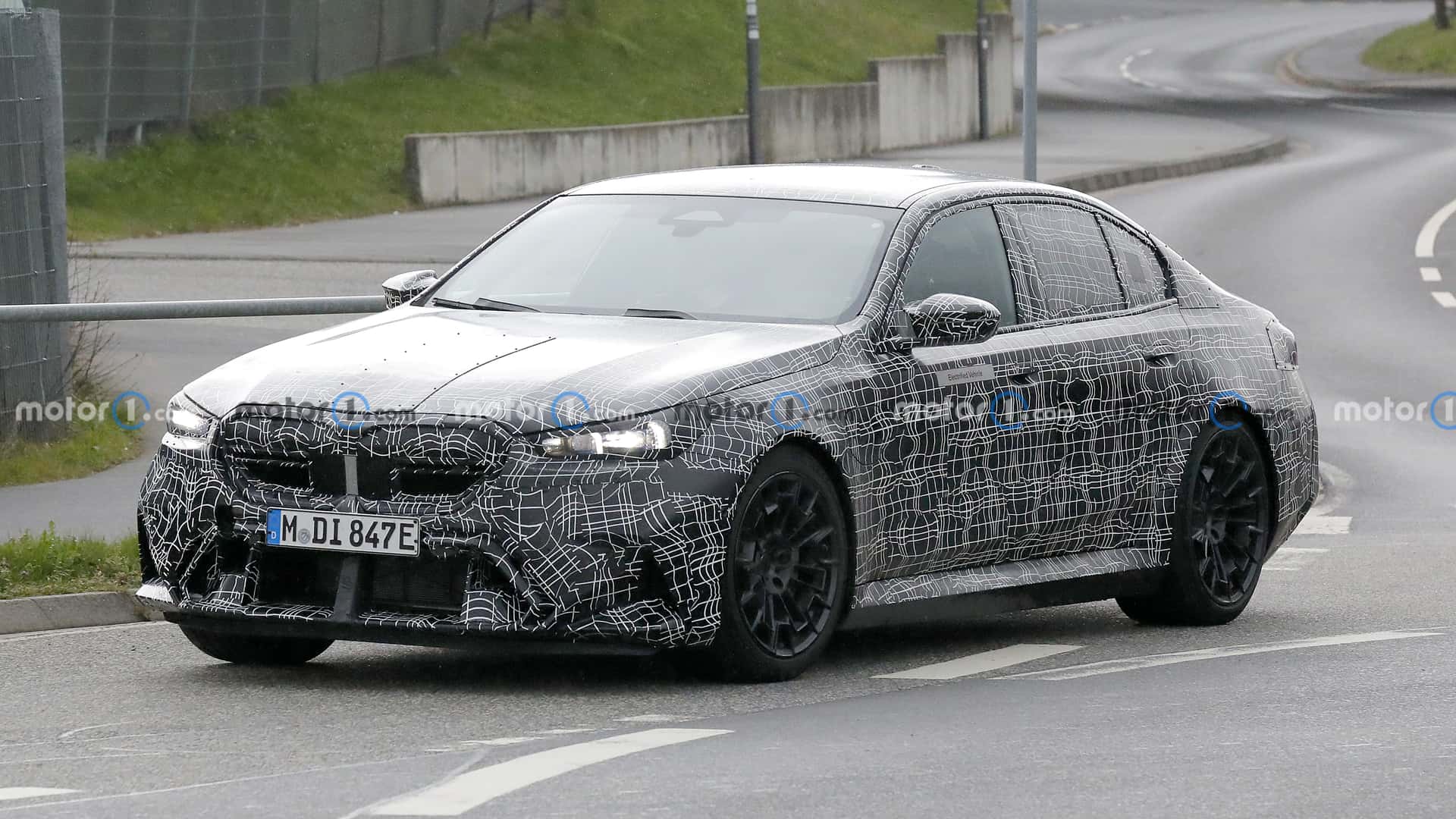
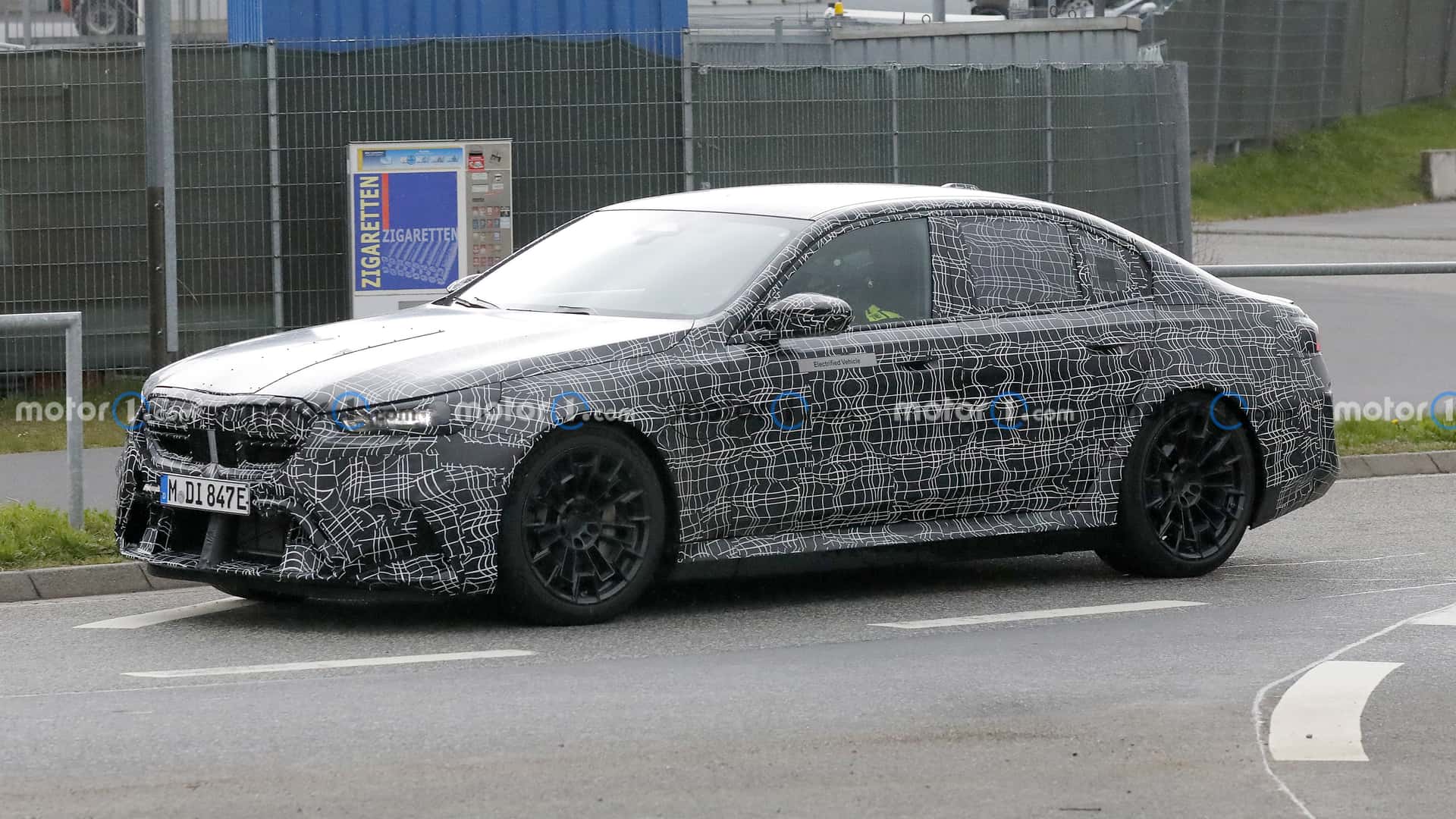
Despite its impressive performance, one leaked detail has sparked concern for the new BMW M5. According to this information, the car is said to weigh a whopping 2,435 kilograms (5,368 pounds). Could this really be accurate? Unfortunately, it’s highly likely. In fact, when compared to the German DIN figure which includes the weight of a driver, the newly released Porsche Panamera Turbo E-Hybrid shares the exact same curb weight. If this number is indeed correct, it would mean that the latest M5 weighs a significant 453 kg (998 lbs) more than its predecessor, the F90.
Why did BMW not opt for using only the V8 engine and call it a day? This move could have significantly reduced its weight by eliminating the hybrid components. However, it seems that the decision was influenced by the ever-increasing emissions standards, especially in European Union member states. A pure V8-powered M5 would have consumed excessive amounts of fuel.
Despite this, a plug-in hybrid system is only beneficial if the owner consistently charges the battery. Otherwise, you’re simply hauling around unnecessary weight, resulting in higher fuel consumption than a gasoline-only car of similar size. Regarding the battery, reports suggest that the upcoming M5 will utilize a lithium-ion pack with a capacity of 18.6 kWh. This is lower than the XM’s 25.7 kWh capacity.
There are concerns about the rumored weight of the M5, but looking at the bright side, the sedan will still be 606 pounds (275 kilograms) lighter than the XM. However, it should be noted that the new M5 is 287 pounds (130 kilograms) heavier than its counterpart, the i5 M60, which is a dual-motor electric vehicle. While the source discusses the sedan model, it is important to keep in mind that there will also be a wagon version available. Known as the G99 model, the M5 Touring is expected to have a higher weight as wagons typically weigh more than sedans.
As expected, the upcoming seventh-generation M5 will have a sizeable stance. According to reports, it will measure 1.4 in (36 mm) longer and 2.7 in (70 mm) wider than the standard 5 Series Sedan. By my calculations, we can anticipate the high-performance sedan to reach a length of 200.6 in (5096 mm) and a width of 77.5 in (1970 mm). To accommodate a revised suspension geometry, BMW has opted to increase the wheelbase beyond its original 117.9 in (2995 mm).
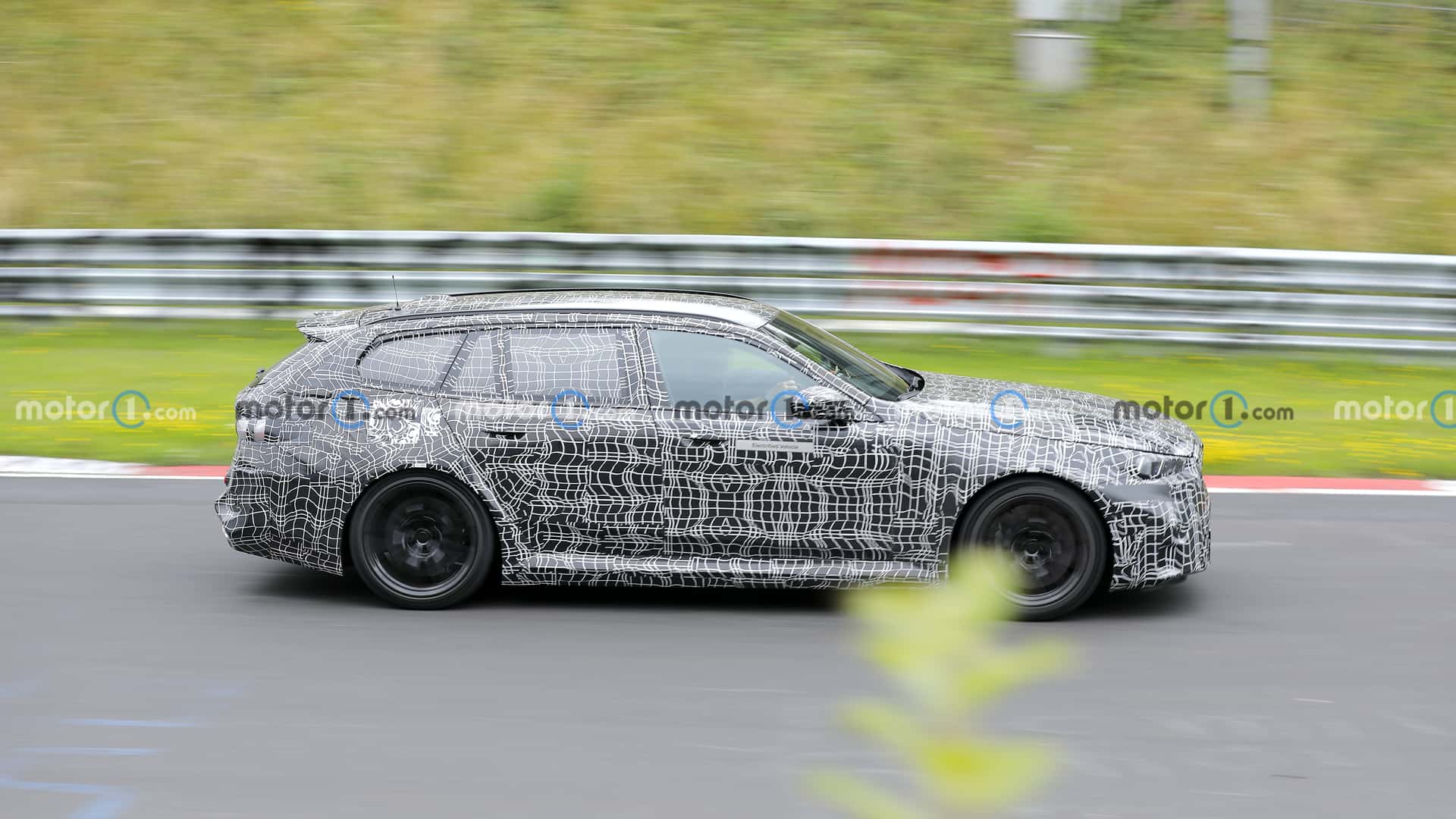
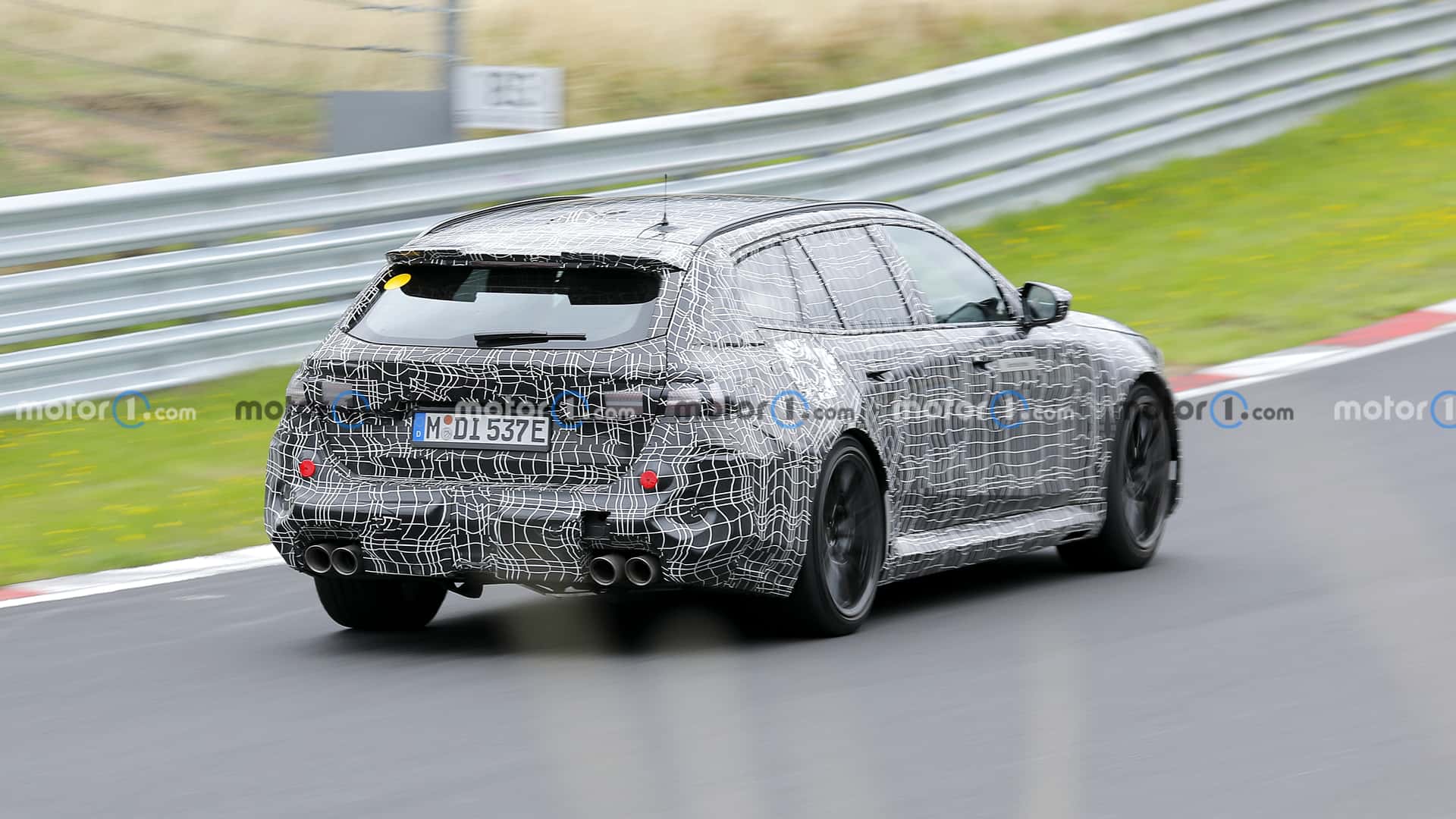

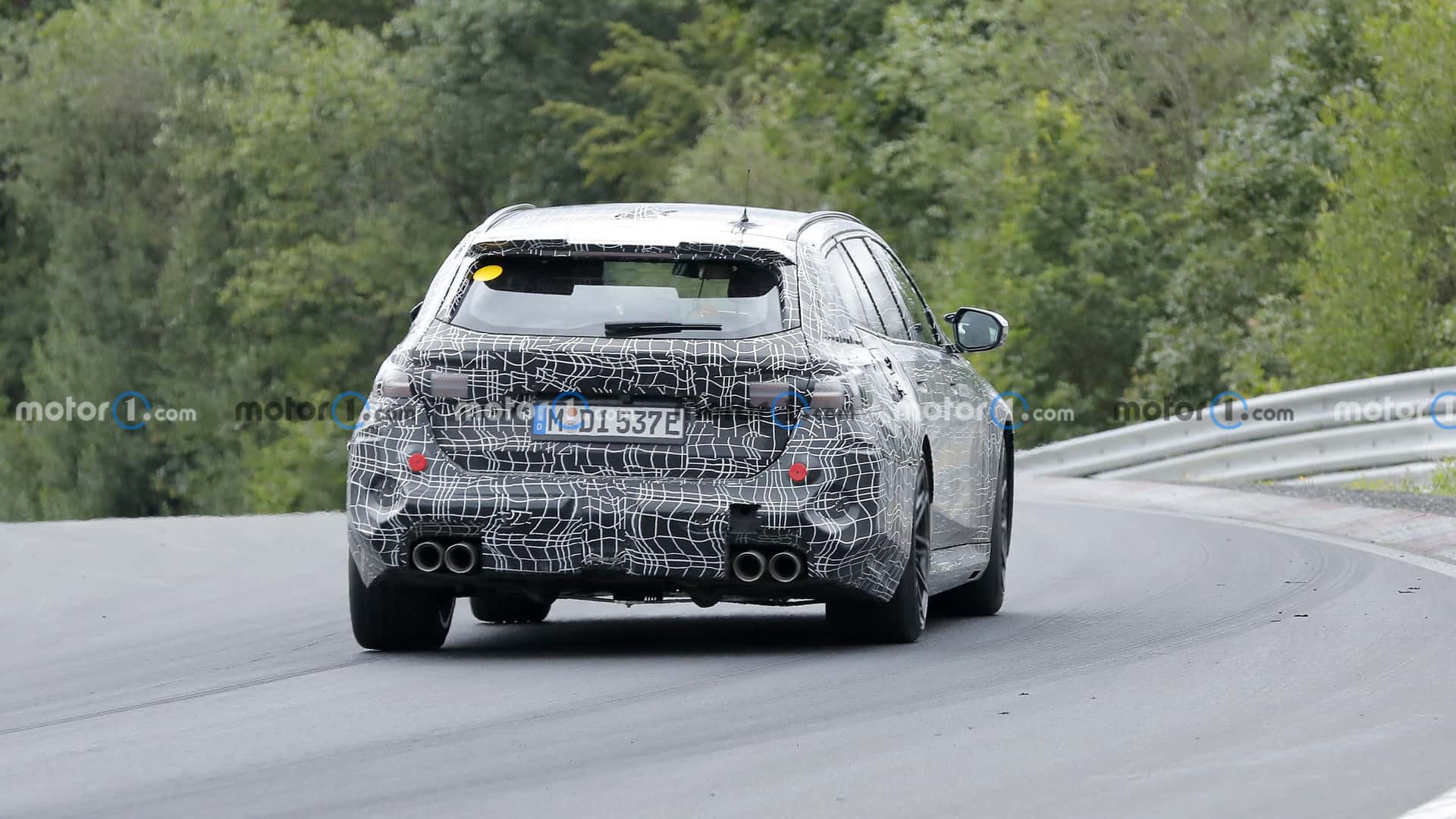

According to an unnamed source within BMW, the front wheels of the upcoming vehicle will be equipped with 20-inch wheels and 285/40/20 tires, while the rear will feature larger 21-inch wheels paired with 295/35/21 tires. The same insider also suggests that a refresh scheduled for early 2027 will introduce a Panoramic Vision, a buzzword used to describe a wide new head-up display that spans the entire dashboard. This technology will debut in the first electric vehicle based on the Neue Klasse platform next year.
The production of the highly anticipated M5 Sedan is reportedly set to begin in July of this year, with the wagon version following in November. According to sources, BMW has planned to manufacture the sedan until February of 2031. It can be inferred that the global launch of the vehicle will take place in the coming months; however, it seems that initially only the sedan will be available, and the wagon variant will be introduced later on in the year.
Source: Bimmer Post





